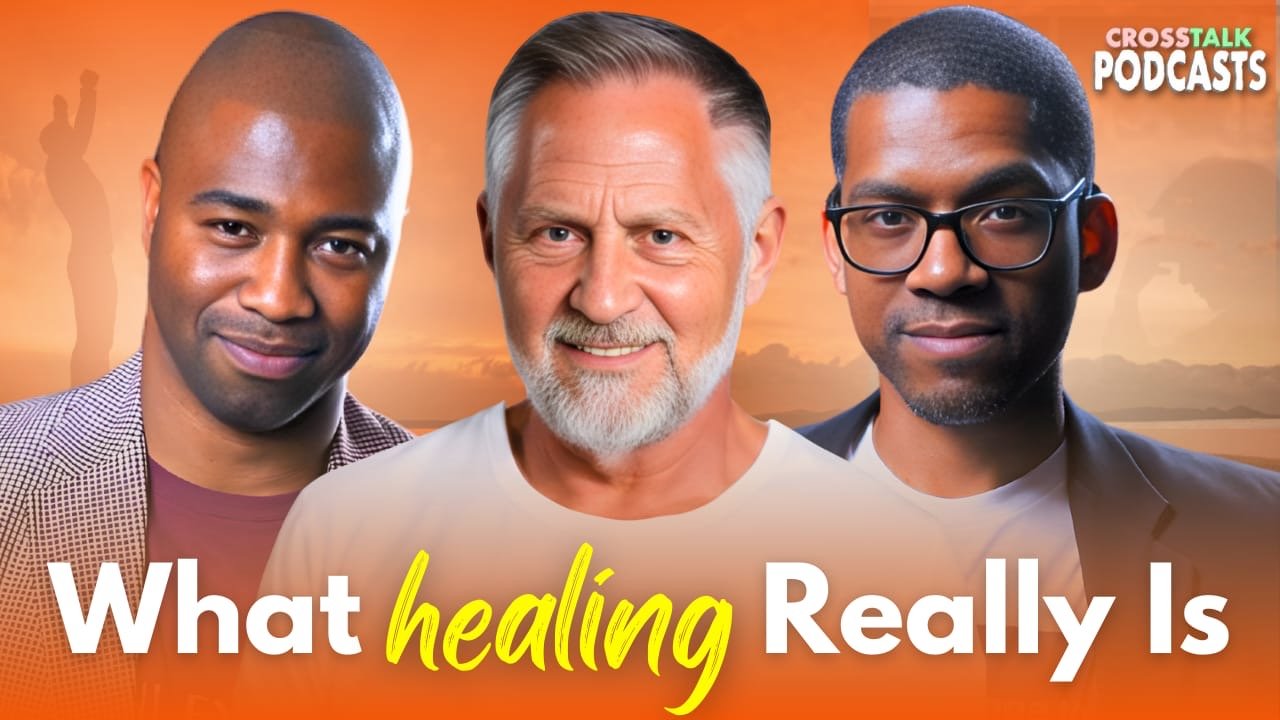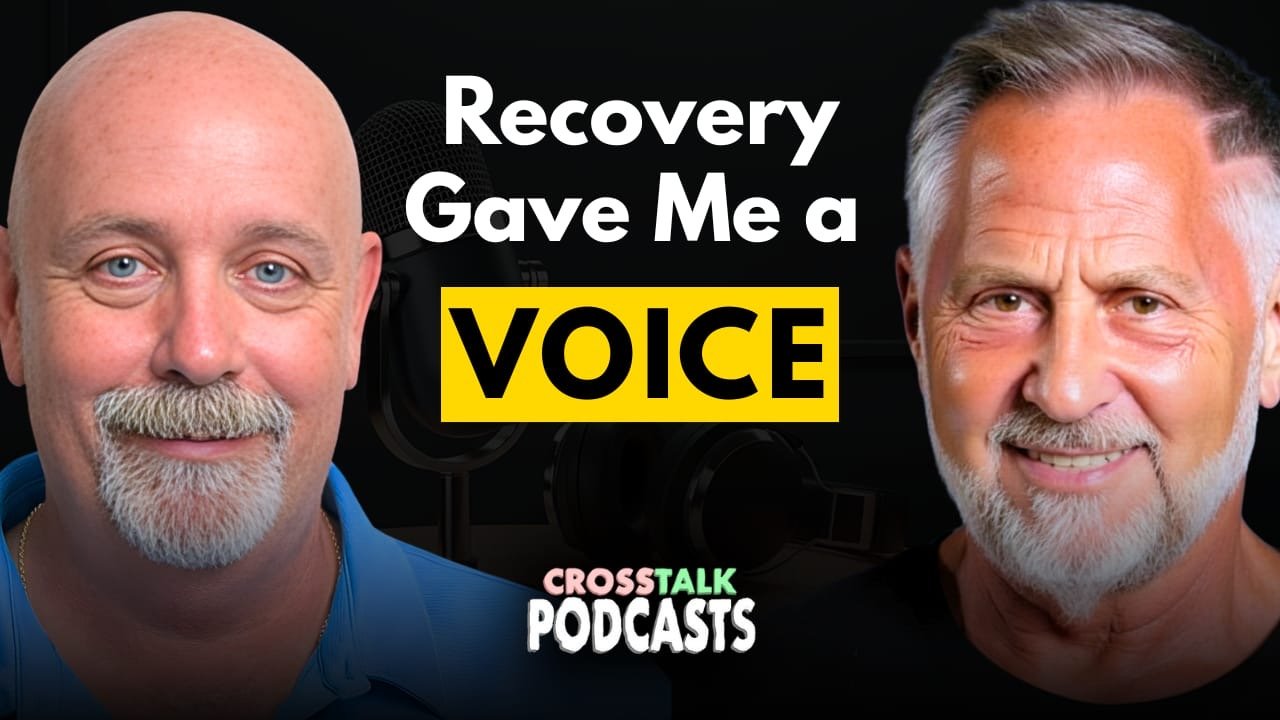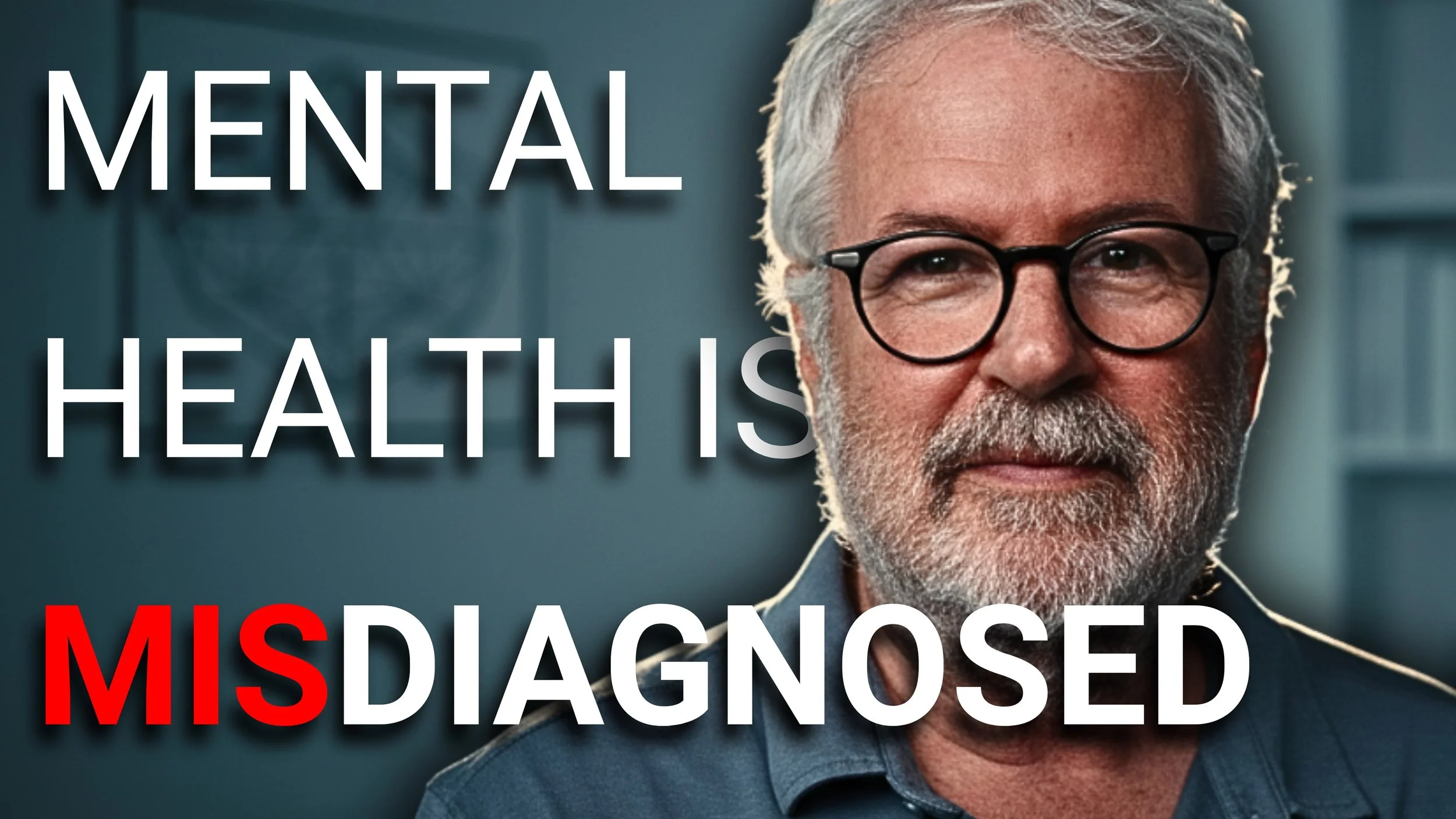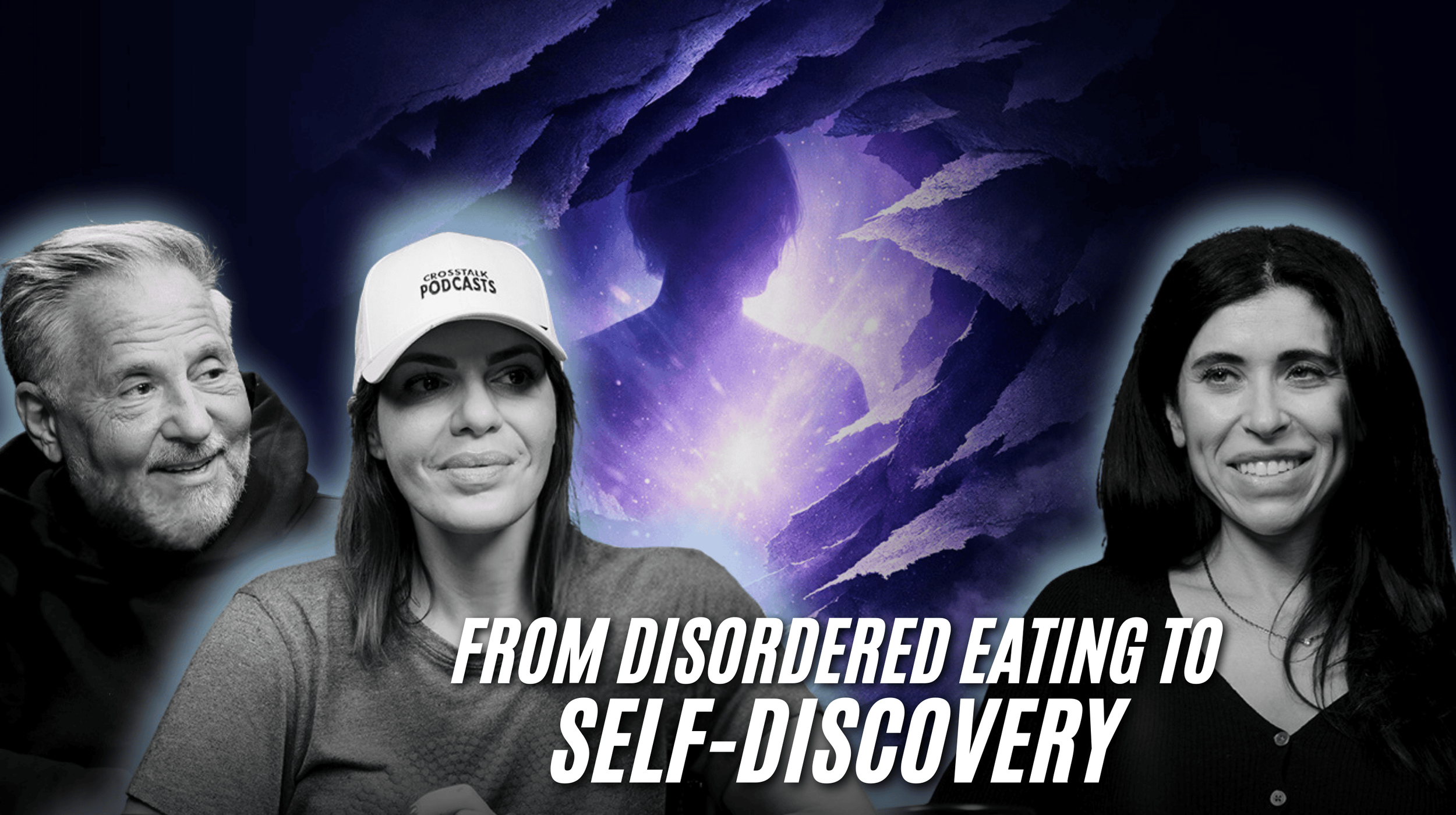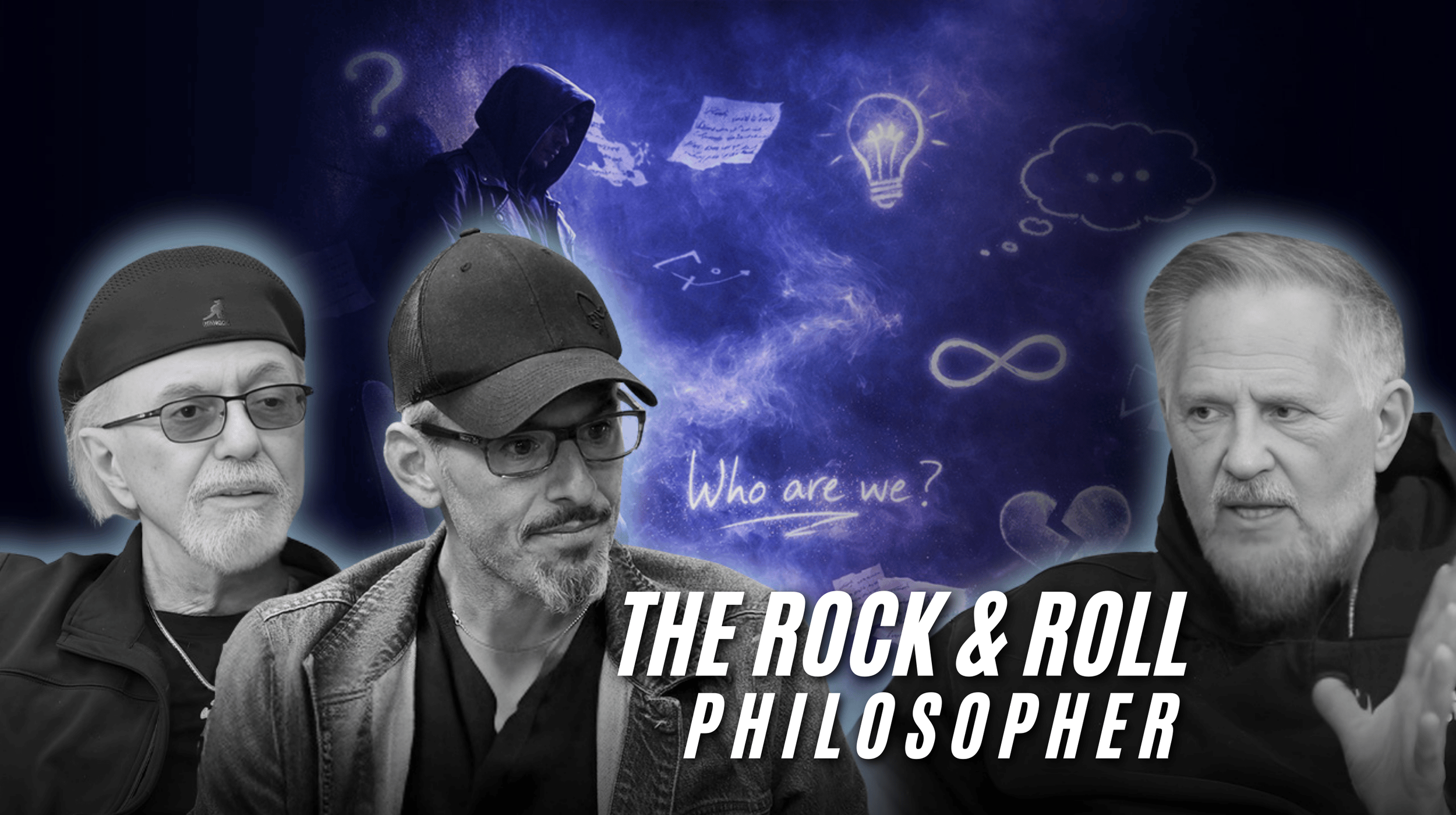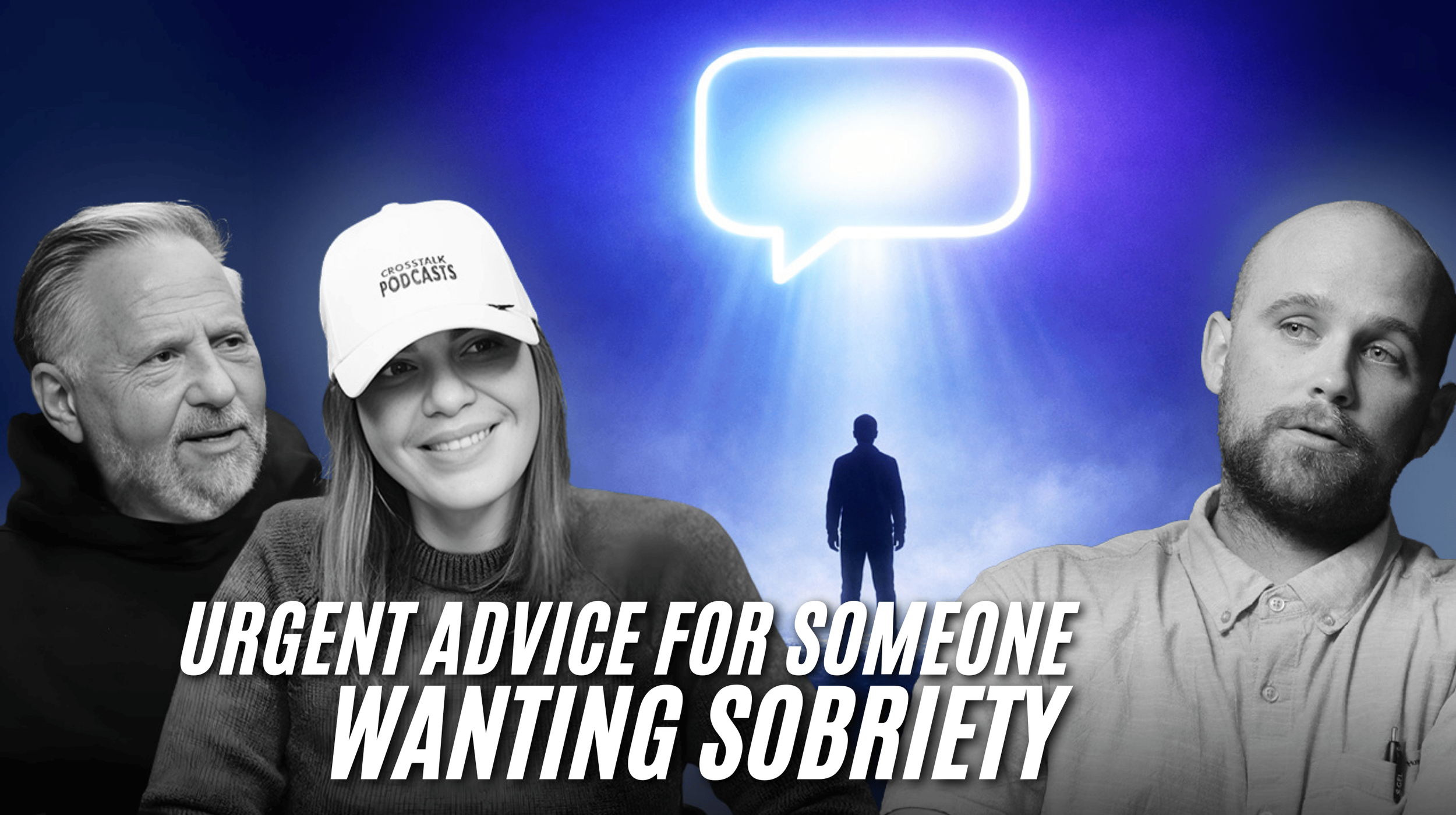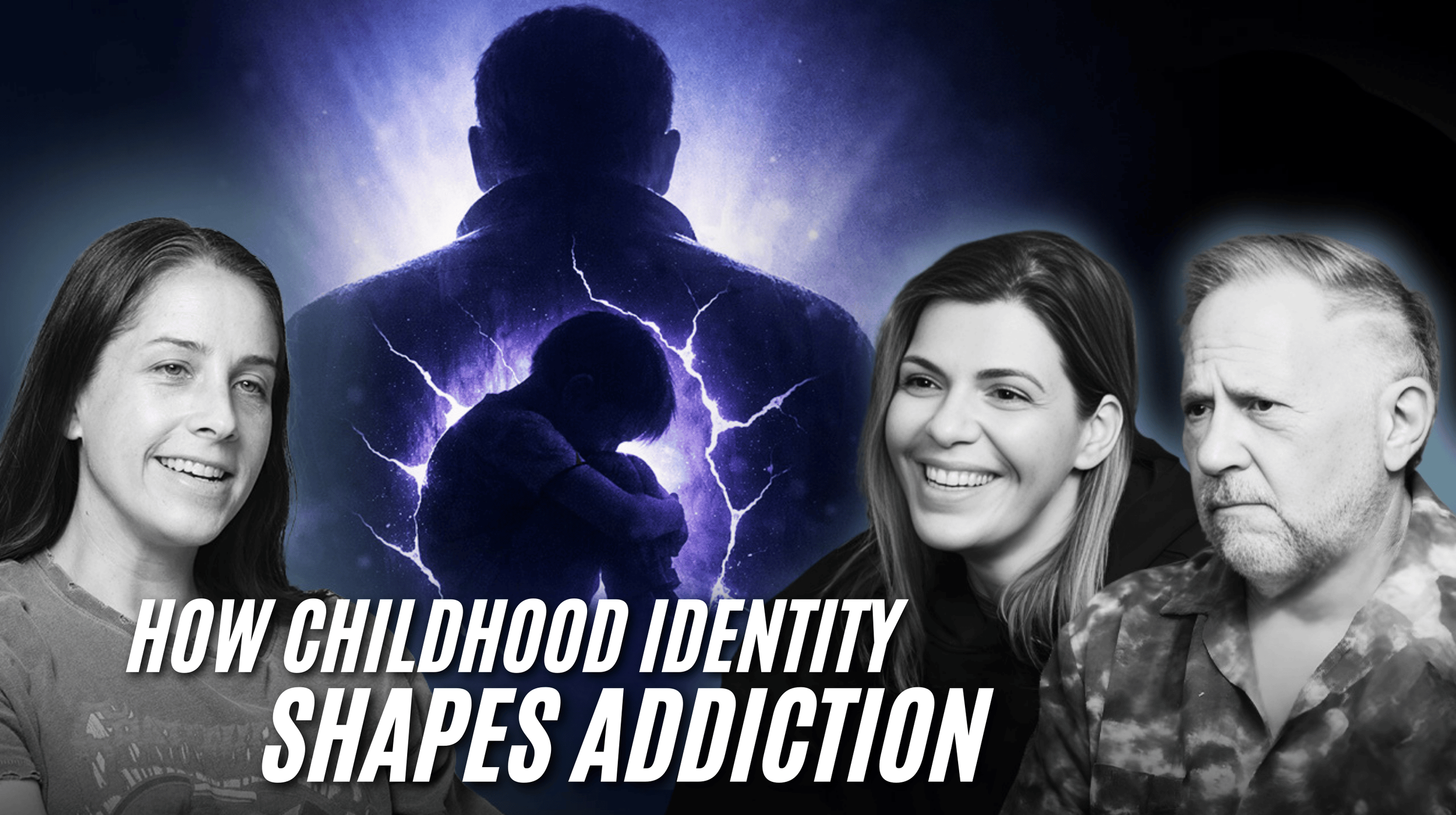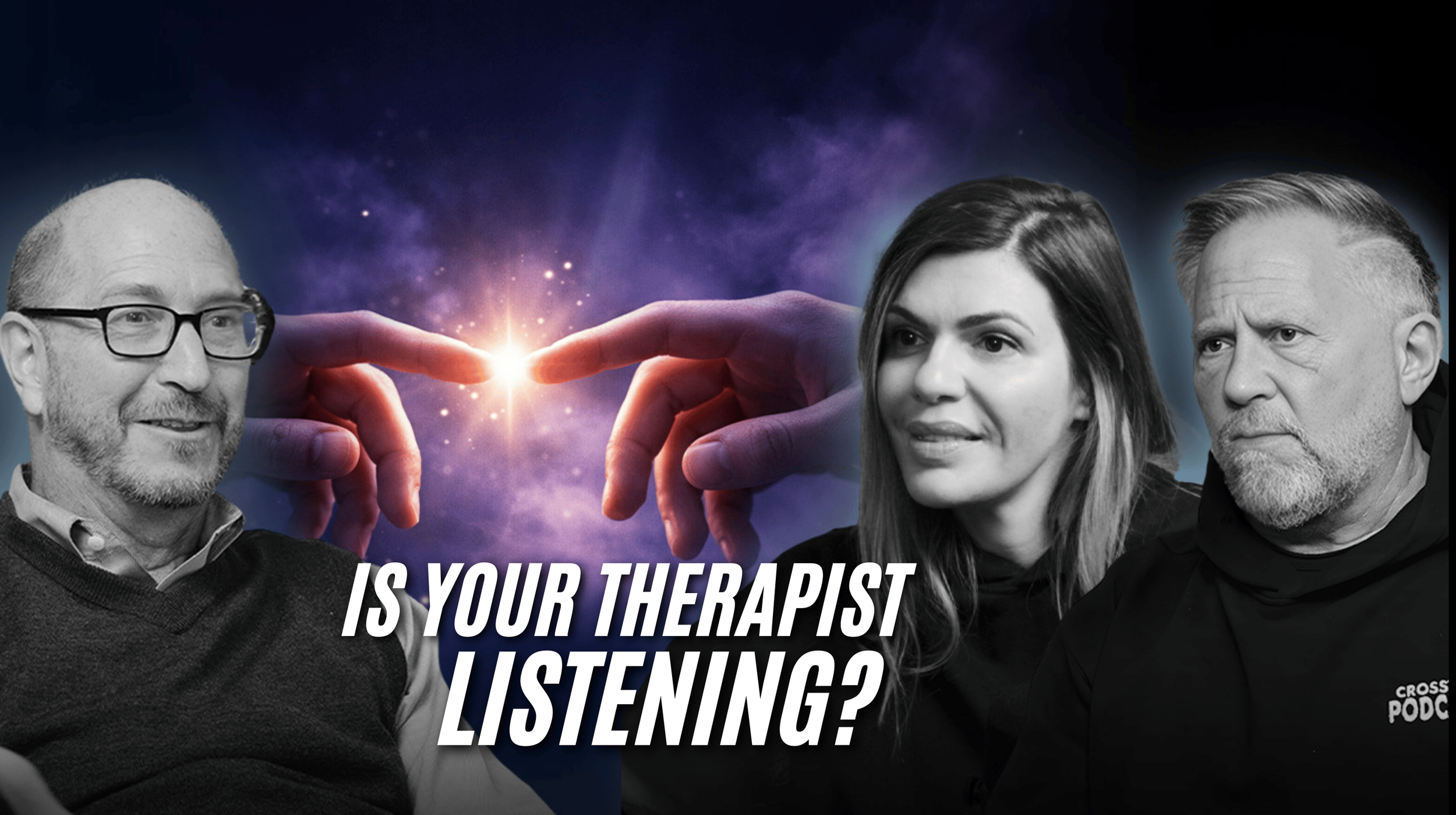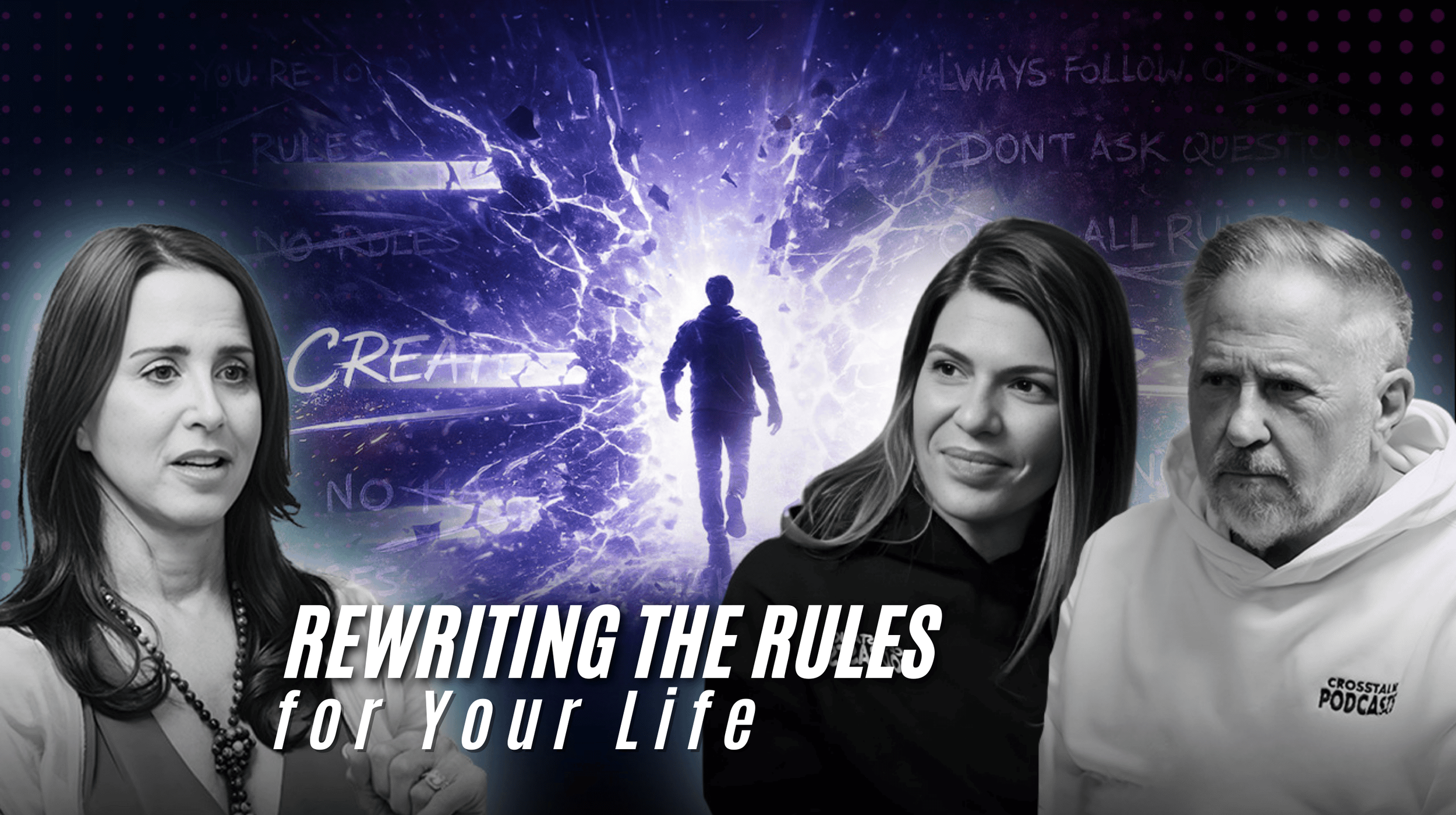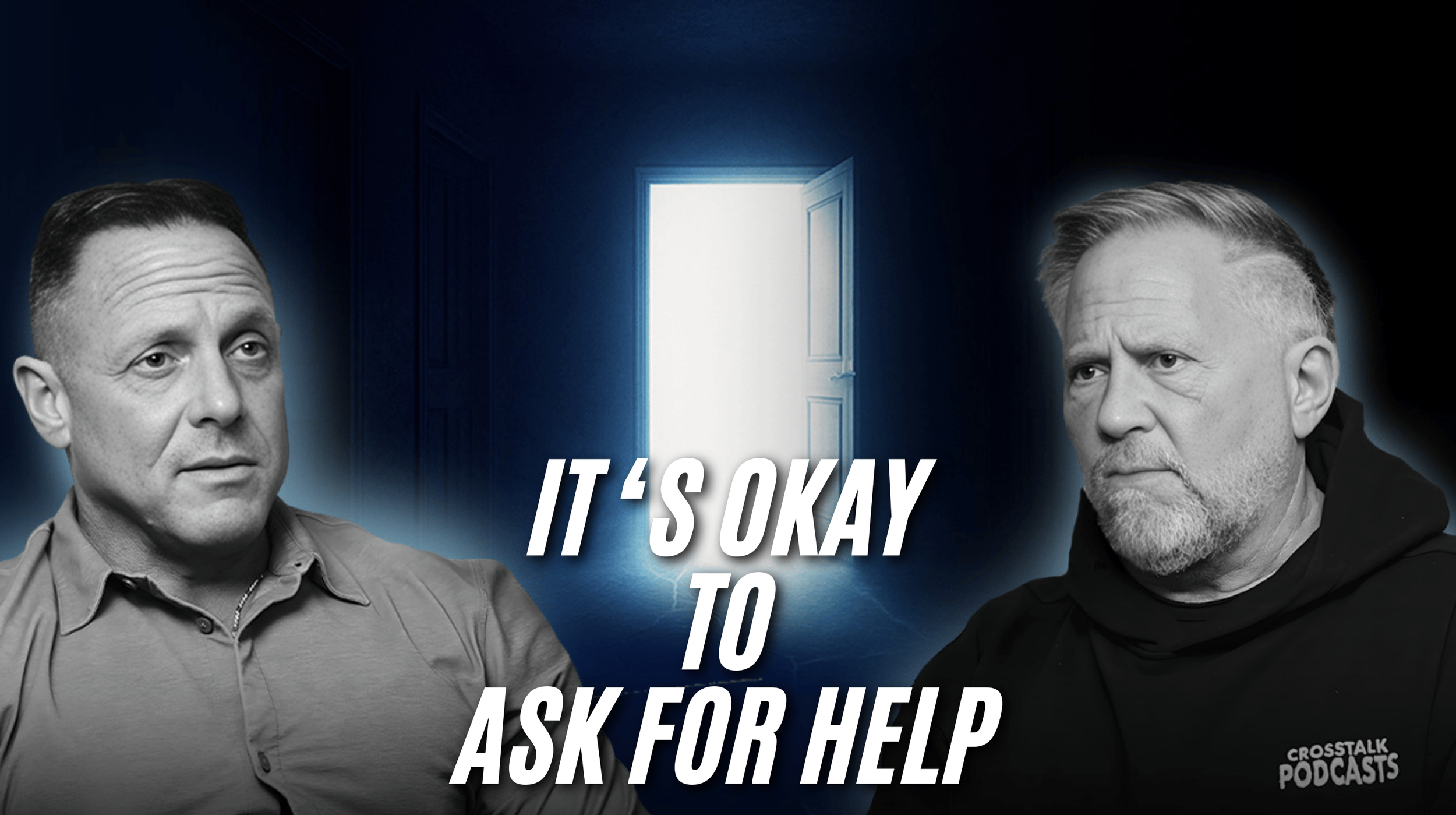Purim, Vodka & Divorce: When Orthodox Judaism Couldn't Save Me | Andrew S.
Listen or watch on your favorite platforms
Andrew Strauss grew up in a strict Orthodox Jewish household, the son of Holocaust survivors, with a legacy to uphold and a life scripted by tradition. Behind the expectations was a boy struggling with identity, pressure, and the earliest signs of addiction.
Growing Up
Andrew Strauss was born into an Orthodox Jewish household in Montreal, the only son of Holocaust survivors. The weight of generational trauma was heavy. His mother bore a tattoo from Auschwitz, and both parents had narrowly survived unthinkable horrors. "My parents sacrificed everything for their children," Andrew recalls. Yet that sacrifice came with towering expectations: to honor the family, live devoutly, and carry the legacy forward.
He was enrolled in an all-boys Yeshiva where the outside world was deemed sinful. No TV. No radio. Even magazines were censored. “I remember flipping through National Geographic and seeing scribbled-out bodies,” he said. From an early age, Andrew felt a pull toward the forbidden toward curiosity, identity, and, eventually, rebellion.
Using a Substance or Engaging in Behavioral Addiction
Though his first "drink" came symbolically during his bris (circumcision ritual) at eight days old, his first real experience with alcohol happened at 15 during the Jewish holiday of Purim. A friend’s father handed him a bottle of Seagram’s. “I remember that warmth,” Andrew shared. “I was goofy and anxious—but when I drank, I didn’t care.” That single night, lying in the snow and making snow angels, marked the beginning of a love affair with alcohol that would become all-consuming.
Active behavioral addiction
As Andrew grew older, his drinking and drug use intensified. In university, hashish became a daily escape. He dropped out, moved between cities, and built a double life. He was successful in business, even lived in a million-dollar home, and appeared to have it all—yet he hid bottles in drawers, garages, and closets. “I’d drink vodka because it didn’t smell. I thought I was clever. I wasn’t.” His marriages suffered, his emotional presence evaporated, and eventually, he drank himself out of both his relationships and financial stability.
Hitting bottom
By 2007, Andrew had been in and out of detox centers, bankrupt, divorced, and emotionally desolate. The turning point came alone, in a dark apartment. “I would drift in and out of consciousness from drinking. And for the first time ever, I truly wanted to die.” Friends found him and brought him—almost literally kicking and screaming—to detox one last time. “I told them I didn’t want to live,” he confessed. That landed him on suicide watch.
Getting help
That moment of surrender sparked a shift. “Who are you to say there is no God?” he remembers thinking. "If it worked for them, why not me?" He stopped resisting and started showing up—spiritually, emotionally, and physically. This time, the program stuck. He leaned into the community, into vulnerability, and into faith, and he hasn't had a drink since October 30th, 2007.
What Things Look Like Today
Today, Andrew lives an honest and balanced life. He no longer hides who he is or tries to live for others. “To thine own self be true,” he says, is his guiding principle. His life is grounded in service, humility, and authenticity. He now shares his story not just to heal himself, but to help others. "You don't have to live in shame. You don’t have to die in silence. There is a way out."
FAQs
What are the early signs of high-functioning alcoholism?
High-functioning alcoholics may appear successful externally while hiding drinking habits from family and friends.Can trauma from childhood or family history contribute to addiction?
Yes, generational trauma and unresolved emotional wounds can significantly increase vulnerability to addiction.What’s the difference between detox and treatment?
Detox focuses on safely removing substances from the body, while treatment addresses the underlying psychological and behavioral patterns.Do you need to hit rock bottom to recover from addiction?
No—many people seek help before hitting a bottom, but for some, the pain becomes the push they need.Is AA the only path to recovery?
No—many people recover through various means, including therapy, medication, community support, or a blend of approaches.
Related episodes
ABOUT CROSSTALK
CROSSTALK reveals real stories of everyday people and notable figures, sharing their journeys from struggles to life-changing 'aha' moments with all kinds .


 Spotify
Spotify





